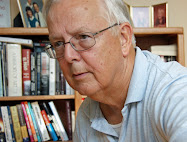 |
| Gavrilo Princip, assassin of Archduke Ferdinand |
But what if that assassination had failed? Maybe the Great War would have started anyway with some other spark. But let's assume not. What might today's world look like if the War to End All Wars had never taken place?
Let's see. The Russian Revolution was a direct outcome of the Tsar's disastrous participation in the war. World War II flowed from the reparations and resentment from the first. Where would Hitler, Lenin, and Stalin have been without all that misery and destruction? Perhaps they would have been no more than long-forgotten thugs. Mao Tse-Tung learned his ideology from the Soviet Union, so China may not have had Mao and his Great Leap Forward. The United States would not have sent troops to Europe, thus ending our isolationist outlook forever. Historical artifacts such as the Ottoman and Austro-Hungarian Empires would have lingered, if not lasted. European powers would not have redrawn the Middle East into countries with artificial boundaries, as with Iraq and Syria.
And what about the Cold War? No communist Eastern Europe, no American troops in Europe, no Holocaust, no Israel (maybe), no nukes, no space race, no satellites, no Internet or GPS, no Korean or Vietnam Wars, no European Union. No President Truman, a World War I hero who integrated the military, helping to advance the cause of civil rights. We might not have had an interstate highway system, at least in part because war hero Dwight Eisenhower would not likely have become president. Of course some of our technological advances might have happened eventually, perhaps generations later, spurred on by other wars.
Of course, other disasters might have--surely would have--happened instead. How today's world would have looked without the Archduke's murder is impossible to know, as unpredictable events cause unpredictable chains of consequences. That war was utterly wrong and pointless, yet its destructive energy yielded, for both better and worse, the society we live in now.
















